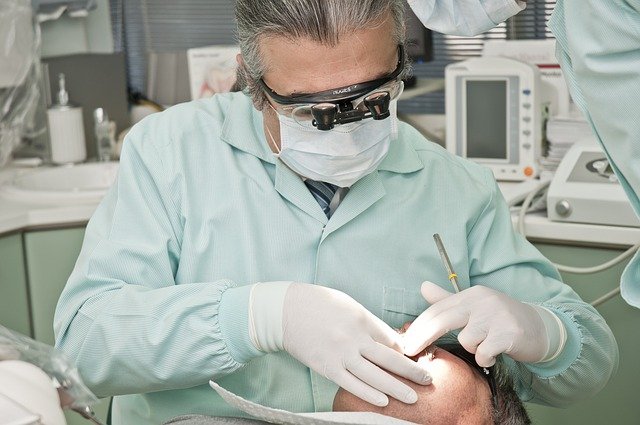
In dentistry, not all medications are accessible to every patient because of how risky they are. Some advanced technical apparatuses like laser technology, ionizing radiation, and electrocautery equipment are also not freely used by all dentists because of how risky they can be. When these tools are wrongly used in a patient's mouth, the patient is most likely to go through severe mouth illness. This is why it is always good to ensure that all tools are properly used to ensure patient's safety.
Do dentists come in contact with fluids?
In dentistry, one thing is mandatorily taught; all dentists and their aides come in contact with fluids and blood. These fluids can transmit irresistible infections if they carry infectious diseases. Aside from dentistry, the advancement of patients' wellbeing is also a moral commitment in all medical fields, and that is why dentist Dr. Allen is extremely careful in his practice so that he can ensure patients' safety.
What happens if a patient is not safe?
In dentistry, a patient's safety is an utmost priority. So, dentists should ensure that their patients are properly taken care of and safe. They should serve as a watchdog to their patients.
Recently in the dental field, there has been a high rate of safety awareness for practitioners and patients. Consequently, the use of medicines and other methodologies that contribute to improving patients' safety is being adopted daily. However, if this is not regularly done, patients would be unsafe.
As of late, a few associations, scientists, and some other medical practitioners have examined the requirement for patients' safety culture in dentistry. Procedures have been adequately provided that are accessible to help improve patients' safety in practice.
How do dentists take care of patients?
In dentistry, all dentists are committed to giving safe dental care to patients, which is essential for guaranteeing great general wellbeing and expects to limit risks and set up an open culture of patients' safety. For this purpose, experts can gain from their own and others' experiences.
A patient's safety is always prominent in the medical service. Dentists take care of patients by;
-
Regularly checking their oral cavities and hygiene
-
Providing the adequate and necessary medicines for the patient's dental health
-
Ensuring the environment is safe and tidy
-
Counseling patients politely if need be
-
Actively and accurately performing their duties
If all these and more are done, patients would not think dentists are unsafe practitioners.
How does the safety of a patient affect the dentist?
The safety of a patient positively affects the dentist. It gives the dentist a remarkable image in dentistry. The safety of a patient boosts the dentist's confidence and gives the dentist a high chance of success when surgically operating other patients.
Can dentists be affected if a patient is unsafe?
Yes, dentists can greatly be affected if a patient is unsafe.
If a patient is unsafe, the dentist might receive a deduction in his or her salary, or be sanctioned, or be completely fired from work.
The role of a dentist in a patient's life
Dentists are specialists who have practical experience in oral health. Their duties include;
-
Diagnosing oral infections.
-
Advancing oral health and preventing oral illnesses
-
Making treatment plans to keep up or reestablish the oral strength of their patients
-
Deciphering x-ray and symptomatic tests
-
Checking development and advancement of the teeth and jaws
-
Performing surgeries on the teeth, bone, and delicate tissues of the oral cavities
-
Guaranteeing safe and viable oral care.
Dentists are also responsible for some complex tasks like tooth extractions, tooth fillings, and so on.
Are dentists just teeth and gums specialists?
Dentists are more than just teeth and gums specialists. Dentists agreeably care for their patient's teeth and gums, but they also care for the patients' muscles in the head, neck and jaw, the tongue, salivary organs, the sensory system of the head and neck, and some other parts of the face.
When a dentist inspects the teeth and gums, they likewise search for bumps, swellings, stains, ulcerations, and all abnormalities. At the necessary time, they perform procedures like biopsies, analytic tests for persistent or irresistible infections, salivary organ function, and evaluating tests for mouth cancer.
Additionally, dentists can spot signs in the mouth early and may also detect illness somewhere else in the body.
Conclusion
Understandably, everyone needs to be protected, and everyone needs to stay safe, and it is part of the dentists' duty to ensure that their patients are safe.
This does not only apply to dentists; it also applies to every medical practitioner. This article has elaborately explained to us who a dentist is, the importance of a patient's safety, and the roles of dentists in assuring it.
* This is a contributed article and this content does not necessarily represent the views of techtimes.com









